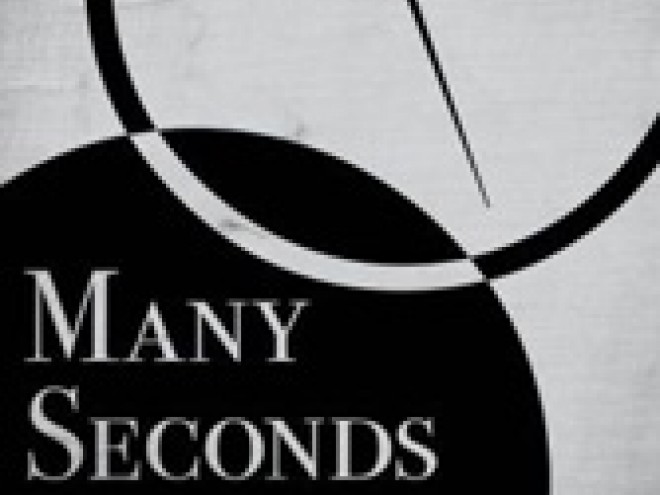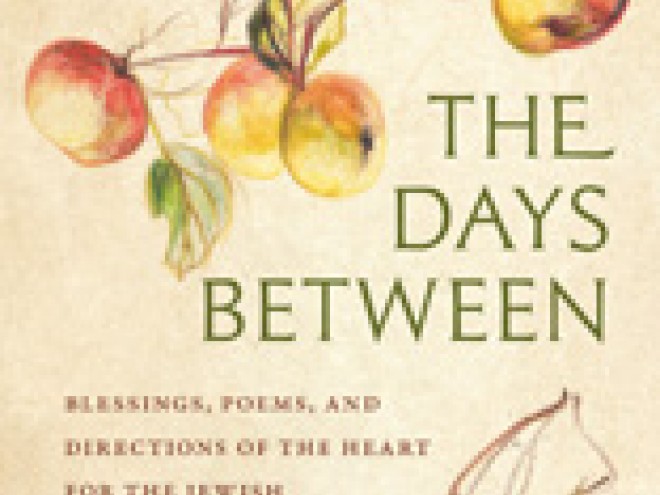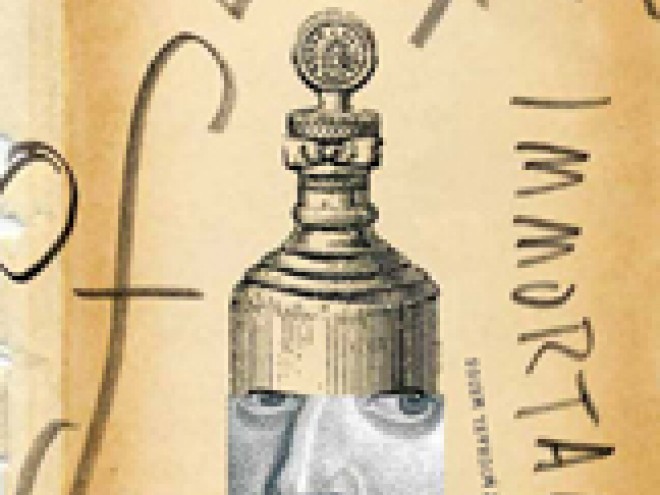Posted by Nat Bernstein
Each year produces a fresh crop of fiction, nonfiction, poetry, and memoir addressing the Jewish High Holidays and the themes they embody: reflection on the past, forgiveness and reconciliation, spiritual cleanse and personal redemption, and transitioning into a new phase of life — both as an individual and as a community. Building on last year’s list, here are ten recommendations for the first ten days of 5776.
 1. The Lost Book of Mormon: A Journey Though the Mythic Lands of Nephi, Zarahemla, and Kansas City, Missouri
1. The Lost Book of Mormon: A Journey Though the Mythic Lands of Nephi, Zarahemla, and Kansas City, Missouri
One of the most compelling contemplations of faith — a thoroughly Jewish faith, and the faith of a writer in his own work — which might be the same thing — to fly under the radar, Avi Steinberg’s sophomore memoir is as profound as its premise is bizarre. To study Joseph Smith’s life and legacy is, for Steinberg, a refreshing reflection on the Hebrew Bible, our hero’s childhood in Jerusalem, the nostalgia for belief of his youth.
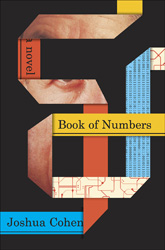 2. The Book of Numbers: A Novel
2. The Book of Numbers: A Novel
Joshua Cohen’s brilliantly unsettling imitates-life bend of fiction hits full force with his latest novel. Playing with science fiction, technology, and identity crisis The Book of Numbers traces the rambling paths of contemporary quests for forgiveness and redemption that emerge when titan of the Digital Age contracts a freelancer who shares his name to write his biography, all in Cohen’s signature engrossing, thoroughly Jewish-postmodern voice.
3. Made in Detroit: Poems
 Marge Piercy dedicates an entire section of her nineteenth collection of poetry to Rosh Hashanah, Yom Kippur, and the turn of the Jewish year in stirring imagery and recurring meditations on family, love, and wishes and failure to be better next year.
Marge Piercy dedicates an entire section of her nineteenth collection of poetry to Rosh Hashanah, Yom Kippur, and the turn of the Jewish year in stirring imagery and recurring meditations on family, love, and wishes and failure to be better next year.
Apples and honey for the new year
but you are my year round sweet
apple. The apple of my eye, apple
of temptation and delight. My honey:
I was never truly happy before you.
I was never truly whole before you.
4. Mission at Nuremberg: An American Army Chaplain and
the Trial of the Nazis
 This year marks the 70th anniversary of the Nuremberg Trials, revisited in Tim Townsend’s riveting account of U.S. Army chaplain Henry Gerecke, a Lutheran clergyman assigned to minister to the Protestant defendants tried and imprisoned in the Nuremberg Palace of Justice following World War II. The story is a fascinating history of America’s military chaplaincy, the Lutheran Church and its mission in the United States, and the jurisprudential and journalist community encouched in postwar Germany — as well as a compelling biography of Gerecke and a respectful examination of the members of his flock awaiting condemnation. Besides being my go-to recommendation for a nonfiction read, Mission at Nuremberg is a fascinating study of confronting evil, religious compassion, and the impossible question of what redemption means for the Nazi arbiters of the Holocaust.
This year marks the 70th anniversary of the Nuremberg Trials, revisited in Tim Townsend’s riveting account of U.S. Army chaplain Henry Gerecke, a Lutheran clergyman assigned to minister to the Protestant defendants tried and imprisoned in the Nuremberg Palace of Justice following World War II. The story is a fascinating history of America’s military chaplaincy, the Lutheran Church and its mission in the United States, and the jurisprudential and journalist community encouched in postwar Germany — as well as a compelling biography of Gerecke and a respectful examination of the members of his flock awaiting condemnation. Besides being my go-to recommendation for a nonfiction read, Mission at Nuremberg is a fascinating study of confronting evil, religious compassion, and the impossible question of what redemption means for the Nazi arbiters of the Holocaust.
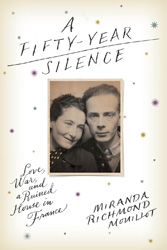 5. A Fifty-Year Silence: Love, War, and a Ruined
5. A Fifty-Year Silence: Love, War, and a Ruined
House in France
Miranda Richmond Mouillot’s memoir of rooting about her family history in attempts to uncover the secret that separated her grandparents half a century ago is a reflective work of self-discovery and rumination on reconciliation. Get a taste of the book and its author with Miranda’s Visiting Scribe posts on questioning Holocaust survivors about their past and the “madeleine moments” she shares with and observed in her grandfather.
6. After Abel and Other Stories
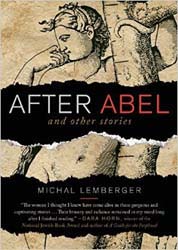 A richly provocative perspective to carry in rereading the Torah afresh starting next week, Michal Lemberger’s collection of nine heartbreaking stories imagines the experience of the women of the Bible, translating their traditional depictions as virtuous, villainous, or simply present into human actions and responses to the experiences and events they witness without voice in the original text. Also a Visiting Scribe on The ProsenPeople, Michal shared her fascination with the story of Lot’s Wife, the narrative struggle of turning King David into a villain, and what the Lifetime adaptation of The Red Tent got wrong with the Jewish Book Council “way back” in 5775.
A richly provocative perspective to carry in rereading the Torah afresh starting next week, Michal Lemberger’s collection of nine heartbreaking stories imagines the experience of the women of the Bible, translating their traditional depictions as virtuous, villainous, or simply present into human actions and responses to the experiences and events they witness without voice in the original text. Also a Visiting Scribe on The ProsenPeople, Michal shared her fascination with the story of Lot’s Wife, the narrative struggle of turning King David into a villain, and what the Lifetime adaptation of The Red Tent got wrong with the Jewish Book Council “way back” in 5775.
 7. Thresholds: How to Thrive through Life’s Transitions to Live a Fearlessly and Regret-Free Life
7. Thresholds: How to Thrive through Life’s Transitions to Live a Fearlessly and Regret-Free Life
The ten-day period between Rosh Hashanah and Yom Kippur is one of transition in the Jewish year and within. If you’re looking to embrace this moment of spiritual transmigration beyond the customary liturgy and ritual practices, embark on the personal examination of self in time and place with Rabbi Sherre Hirsch’s mindful guide to discovery.
 8. Ghetto Brother: Warrior to Peacemaker
8. Ghetto Brother: Warrior to Peacemaker
Julian Voloj and Claudia Ahlering present a graphic narrative of the 1971 Hoe Avenue peace meeting brokered by the Ghetto Brothers’ president and Nuyorican marrano Benji Melendez to establish a truce between the warring gangs of the Bronx. Alongside Melendez’s discovery of his crypto-Jewish heritage and return to the hidden religion of his ancestors, Ghetto Brother is an absorbing true story of unlikely reconciliation and the birth of Hip Hop.
 9. How’s Your Faith? An Unlikely Spiritual Journey
9. How’s Your Faith? An Unlikely Spiritual Journey
Certainly you recognize David Gregory from his career as a former NBC newsman and Meet the Press moderator, but you might not know how his strong Jewish identity instilled from his upbringing developed into belief over the course of a decade of study with an Orthodox Jewish scholar. Prompted by a question from George W. Bush during David’s assignment as chief White House correspondent, How’s Your Faith? considers the “ Unlikely Spiritual Journey” from one of television journalism’s most recognized faces.
 10. Days of Awe: A Novel
10. Days of Awe: A Novel
You name your book Days of Awe, it pretty much has to be on this list. While the novel does not overtly address the Ten Days, it spins around themes of past wrongs, forgiveness, and the rending process of beginning anew. One of Jewish Book Council’s Visiting Scribes over the Ten Days of Awe 5776, read Lauren Fox’s entries on The ProsenPeople here.
Related Content:
- Read last year’s recommendations of 10 Awesome Books for the 10 Days of Awe
- High Holidays Reading List
- Kol Nidre at the Movies: 5 Surprising Films Featuring Yom Kippur Services
Nat Bernstein is the former Manager of Digital Content & Media, JBC Network Coordinator, and Contributing Editor at the Jewish Book Council and a graduate of Hampshire College.

